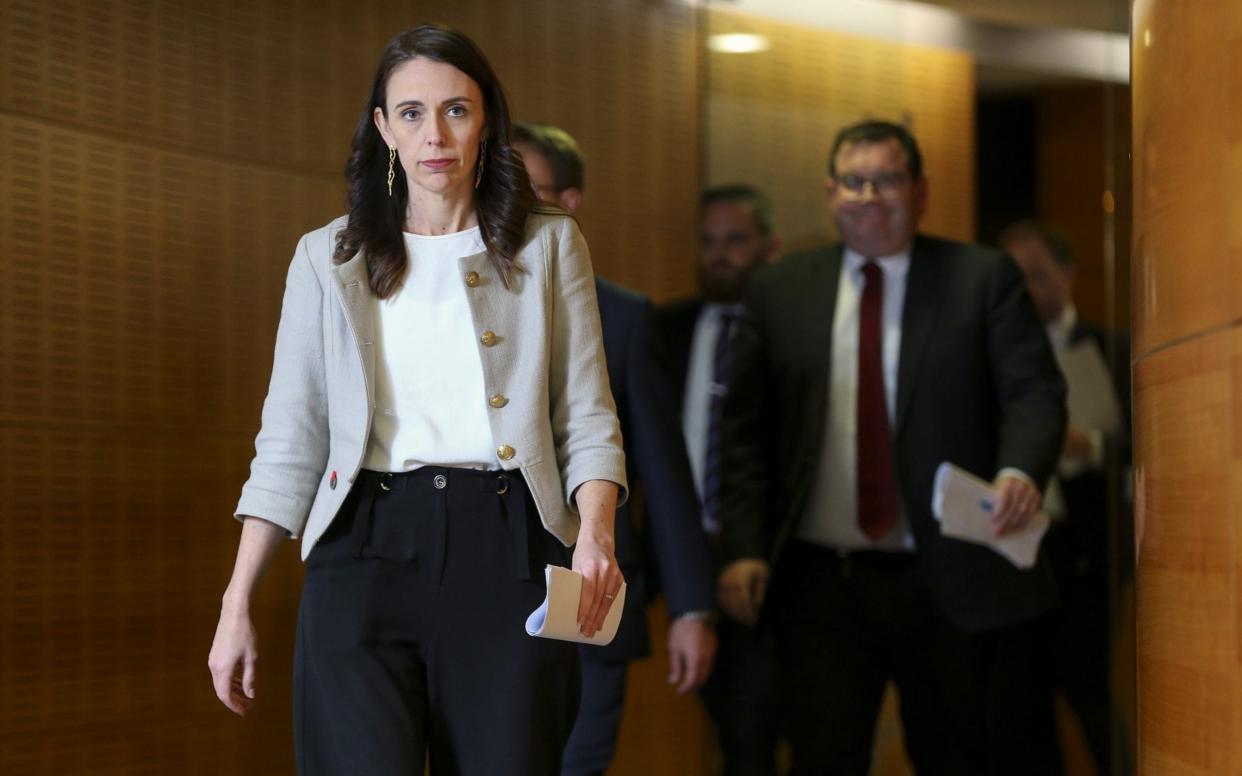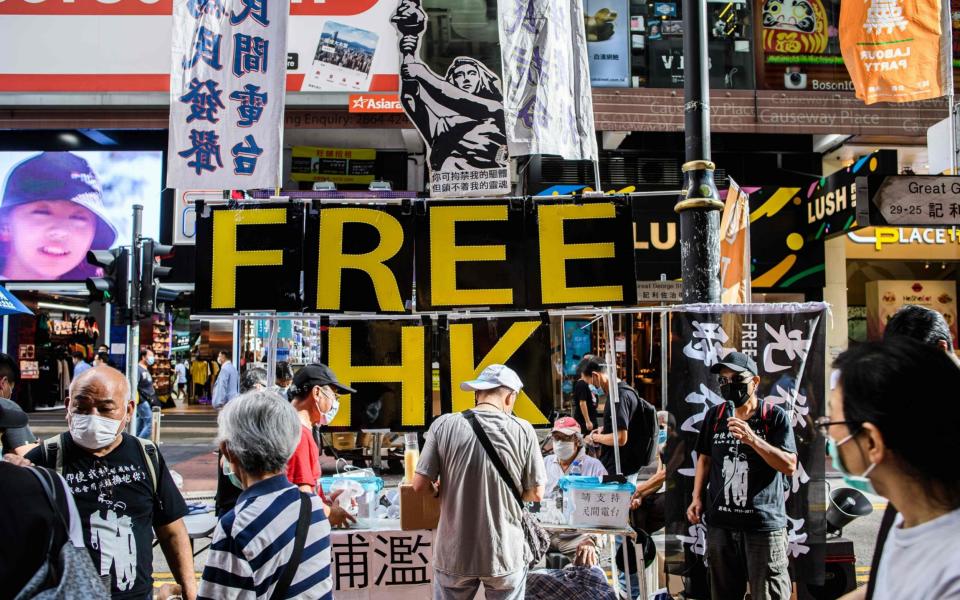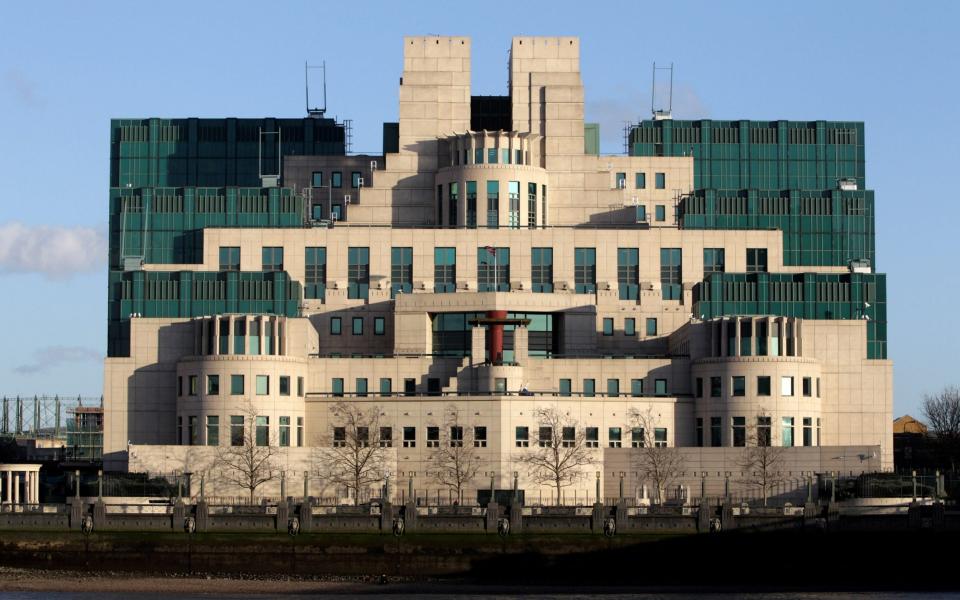New Zealand hits back at 'ill-informed' fears for Five Eyes alliance amid Beijing rift

New Zealand has criticised as “ill-informed” suggestions that the "Five Eyes" alliance is at risk amid fears over Beijing's influence.
Earlier this week, New Zealand said it was "uncomfortable" with letting the so-called Five Eyes intelligence alliance - which includes New Zealand, Australia, Canada, the US and Britain - dictate its dealings with China.
Insiders have said the government will not be corralled into sabotaging its relationship with China, which is its main trading partner, and won't outsource its foreign policy as rhetoric over dealing with China becomes increasingly bellicose.
New Zealand has previously been reluctant to sign joint statements from Five Eyes partners criticising China, including on the crackdown on Hong Kong's democracy movement and the recent arrests of activists in the city.
But suggestions that the intelligence sharing group is struggling over China have now been played down by Wellington and by intelligence agencies.
A former senior New Zealand minister said the Five Eyes group had survived serious disagreements before with no impact on the fundamental cohesion of the alliance. Phil Goff, New Zealand’s former foreign affairs minister, said: "No-one can ever accuse New Zealand of not playing its part in the fight for international security, peace and freedom”.

Mr Goff said throughout his decades in politics, New Zealand had valued both the Five Eyes relationships and its independent foreign policy, believing the two could co-exist without difficulty.
"Even in the years when there was a strong reaction from the US to our nuclear-free position, and even though a whole series of sanctions were taken against New Zealand for daring to have an independent policy, the intelligence relationship survived and continued pretty much as normal," he said.
Neale Jones, the former Chief of Staff to Prime Minister Jacinda Ardern, told The Telegraph: “New Zealand has a longstanding independent foreign policy that has continued through National and Labour administrations for many, many years.”
Mr Jones said New Zealand had recently issued joint statements with Australia raising concerns about China’s treatment of Uighurs in Xinjiang. “New Zealand is still criticising China,” he said.
However, Mr Jones said successive regimes guarded New Zealand’s independent foreign policy and would not “outsource” that policy to Five Eyes, or any other entity.
“No speech is given by the Foreign Minister without the Ministry of Foreign Affairs and Trade being all over it, without it being canvassed very widely within the bureaucracy.
“The government is not naive about China's increasingly aggressive stance on the world stage."
British intelligence and security agencies are unconcerned about the recent suggestion New Zealand was adopting a softer line on malign Chinese activity.
This week New Zealand Foreign Minister Nanaia Mahuta, who has a moko kauae - a traditional female Maori tattoo - on her chin said: “We will not ignore the severity and impact of any particular country’s actions if they conflict with our longstanding and formal commitment to universal human rights.”
Speaking at a meeting of the New Zealand-China council, Ms Mahuta praised aspects of her country’s bilateral relationship with China, which is New Zealand's biggest trading partner and with which it has had a free trade agreement since 2008. Trade between the countries accounts for 29 per cent of New Zealand exports.

Last year the Five Eyes alliance took the decision to expand its remit beyond its core role, dating back to its formation during the Second World War, of collecting and sharing intelligence. The network now also seeks to promote “shared values” on democracy and human rights.
Officials in New Zealand have not previously addressed the issue but Ms Mahuta said Wellington wanted to chart its own course in dealings with China.
She said: “New Zealand has been very clear... not to invoke the Five Eyes as the first point of contact on messaging out on a range of issues. We’ve not favoured that type of approach and have expressed that to Five Eyes partners.”
Critics of Prime Minister Ardern’s position on China say she risks isolating her country from allies like neighbouring Australia, whose own trading relationship with Beijing has suffered heavily because of Canberra’s criticism of China’s attempts to cover up the origins of the coronavirus pandemic, as well as its assault on Hong Kong.
A Whitehall security official told The Telegraph the recent spat showed the Five Eyes alliance was sufficiently comfortable to be able to disagree publicly on specific matters without it impacting the group’s fundamental strength. “This is a storm in a teacup,” The Telegraph was told.
In recent years China has adopted an increasingly aggressive foreign policy, particularly over sovereignty issues in the South China Sea. Relationships with Japan, the Philippines, Malaysia, Vietnam and other regional nations have been strained over Beijing’s land claims, many of which are widely disputed.
In the recent Integrated Review of foreign, defence, security and development policy, the British government said China’s “increasing power and assertiveness internationally” is likely to be the biggest geopolitical factor of the 2020s. “The significant impact of China’s military modernisation and growing international assertiveness within the Indo-Pacific region and beyond will pose an increasing risk to UK interests,” the paper said.

